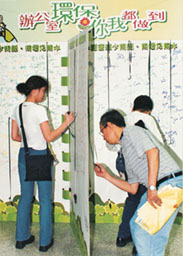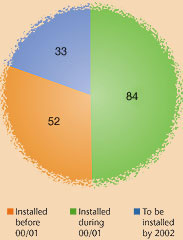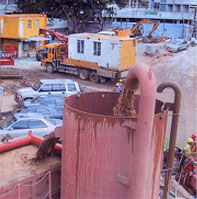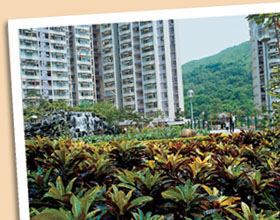 |
Save
Paper Competition
We launched
a Save Paper Competition in December 2000 as part of our "Green
Housekeeping" campaign in order to encourage staff to save
paper. Results are monitored and published periodically to arouse
awareness and gain support. |
Waste
Minimisation in Offices
In our offices, a series of waste minimisation initiatives to reduce
use of paper are being implemented, including:
 |
Increased
use of double-sided printing and photocopying (35 double-sided
photo-copiers were purchased last year - 11 were replacements
for old machines). |
 |
Minimising
photocopies. |
 |
Reuse
of envelopes and scrap paper. |
 |
Increased
use of e-mail. |
 |
Increased
use of recycled paper. |
 |
Use
of energy efficient office equipment (56 laser facsimile machines
were installed - 19 as replacements for old thermal paper machines). |
As a result of
some of the above measures, last year our staff beat the set target
on paper use by 1.5%. This saving came in spite of last year being
our peak flat production year. About 8.5% of the photocopying paper
we used last year was from recycled sources; next year we hope to
improve this to around 25%. We have also improved our collection of
unavoidable waste paper for recycling. In previous years, we only
collected waste paper in our head offices. Now all our HD offices
have collection bins. From 343 collection bins, we collected 428 800
kg of waste paper in the past year. This was much more than the 275
300 kg we collected over the whole period 1996 - 1999.
Materials Usage & Resource Conservation
Water Conservation & Water Quality
In the past year we have implemented or have planned a number of water
saving measures in our building programme, including:
 |
Smaller
sized cisterns of 7.5 litre for toilet flushing for all new
domestic blocks. |
 |
Water
saving, self-stopping taps, in our designs (last year we fitted
out 12 commercial centres). |
 |
We
are investigating the use of dual-flush cisterns to optimise
usage. |
 |
We
are continuing to install isolation valves and check meters. |
To date, we have
specified small size toilet cisterns (having a 16% smaller volume
of flush water) in tenders for 44 new blocks. However, following a
detailed review, we have decided not to proceed with widespread replacement
of small cisterns in existing blocks (unless the bathroom fittings
need replacing anyway), since the environmental costs in terms of
waste and resource use would outweigh the advantages in terms of water
saved.
On our construction sites (where site conditions permit) we have specified
the use of water recycling systems in bored piling works where a large
amount of water is used. So far over 10% of such sites have adopted
the system. We will promote wider use of water recycling systems and
will investigate extending the use of such systems to other appropriate
sites where a large amount of water is used.
 |
We
have set targets to reduce water usage under our control in
rental estates by reducing pipe bursting and leakage, which
has been a problem in some older estates. We will shortly award
an inspection/ maintenance contract to assess leakage in the
piping systems near slopes in existing estates. Leakage control
has also been achieved through re-plumbing and installation
of isolation valves and check meters, which over the past year
has been completed at 84 rental estates (bringing the total
number to 136).
|
| Staff
participated in "Green Housekeeping" campaign. |
HK-BEAM
We are actively
participating in the development of the Hong Kong Building Environmental
Assessment Method (HK-BEAM) - Residential Version. This is the
first set of standards for assessing the environmental performance
of high-rise residential developments throughout their life
cycle, from planning to design, construction and use. Provisional
good ratings were achieved for two housing projects selected
for trial assessment. We are now refining our designs to achieve
higher ratings. |
Isolation Valve and Check Meter Installations
in Public Housing Estates (number)
Text-only version

|
|
The
rusting of galvanised iron pipes traditionally used in old buildings
could give rise to discolouration of the water supply. We established
a Master Re-plumbing Programme in 1995 to steadily replace the
galvanised iron pipe works in existing housing estates (to date,
498 blocks of flats have been re-plumbed using uPVC-lined pipes
and a further 108 blocks are programmed to be re-plumbed by
the end of March 2002). We also specify (according to need)
cement-lined pipes, copper pipes or polyethylene (HDPE) pipes
that are proven to have advantages in terms of quality of supply.
In addition, we are arranging to conduct water quality verification
tests (for bacteria in the water supply) to investigate the
efficiency of the cleansing process. |
| We
are reducing the wastage of water resources by installing isolation
valves and check meters at our estates. |
 |
|
 |
| We
have specified the use of water recycling systems in bored piling
works where a large amount of water is used. |
|
 Greenery
at King Lam Estate,Tseung Kwan O Greenery
at King Lam Estate,Tseung Kwan O |
|
 |

